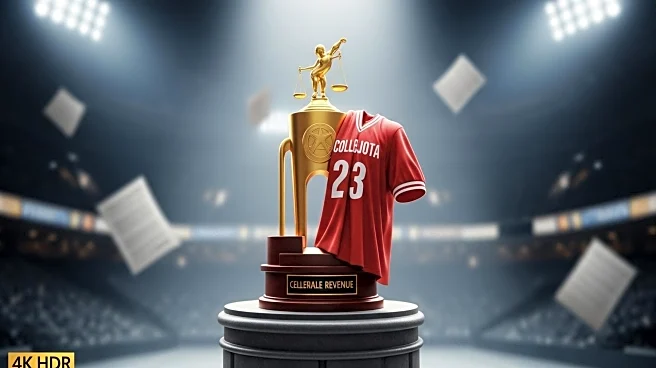What is the story about?
What's Happening?
Virginia Tech has ceased revenue share payments to a football player who expressed interest in redshirting, according to the player's attorney, Darren Heitner. The player, who has not been named, was informed that his payments would stop after he communicated his intent to redshirt to interim head coach Phillip Montgomery. The university also removed him from the roster and revoked his access to the program, citing alleged fraud. Heitner argues that the player's request to redshirt does not constitute a breach of contract, as he has not opted out of the team or entered the transfer portal. This situation highlights the complexities of revenue sharing agreements in college sports, especially in the context of name, image, and likeness (NIL) rights.
Why It's Important?
This incident underscores the evolving landscape of college athletics, where revenue sharing and NIL agreements are becoming more prevalent. The case raises questions about the power dynamics between universities and student-athletes, particularly regarding financial agreements. The outcome could set a precedent for how similar cases are handled in the future, potentially affecting the financial rights of student-athletes across the country. Schools and athletes alike are navigating uncharted territory, and the legal interpretations of these agreements could have significant implications for the collegiate sports industry.
What's Next?
The player, represented by Heitner, is considering legal action if a resolution with Virginia Tech cannot be reached. This case could lead to a court decision that clarifies the enforceability of revenue sharing agreements in college sports. Additionally, the NCAA and other governing bodies may need to establish clearer guidelines to prevent similar disputes. The situation also highlights the need for universities to carefully consider the terms of their agreements with student-athletes to avoid potential legal challenges.
Beyond the Headlines
The case illustrates the broader ethical and legal challenges in college sports, where athletes are not classified as employees but are increasingly involved in financial agreements. The decision to withhold payments based on a player's choice to redshirt raises questions about the fairness and transparency of such agreements. As the college sports landscape continues to evolve, institutions may need to reassess their policies to ensure they align with the rights and expectations of student-athletes.















